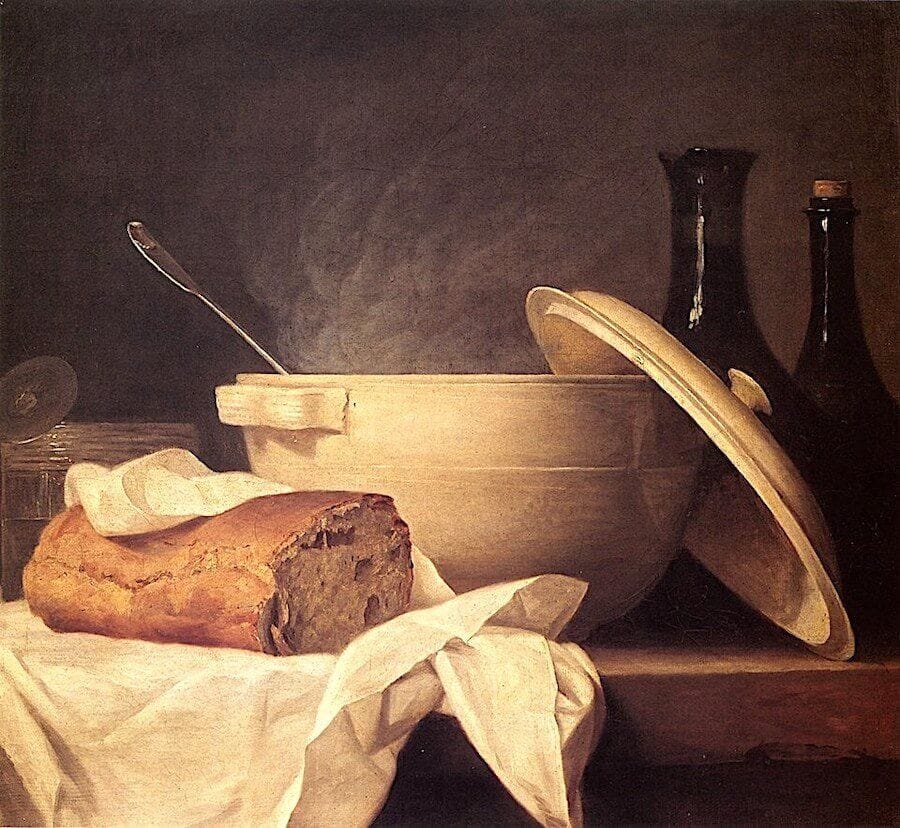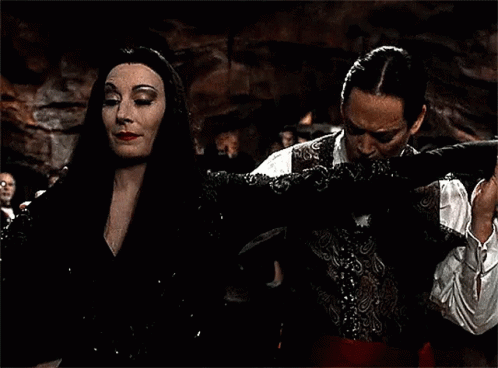My food tastes are ridiculous, I'm sorry

I first went vegan when I was twelve. Being vegan in Centurion in the early 2000s was a pro-level challenge, I tell you. Forget buying tofu, fake meat or plant milk. My family's one option for eating out was the Rooihuiskraal Spur, which in those days had one vegetarian meal option called "Salad Valley": a buffet of wilted and slightly damp iceberg lettuce which had been sitting under a heating lamp since nine a.m. and cubes of pickled beetroot leaking neon vinegar all over lukewarm potato salad.
*A note for international readers: Spur is an inexplicably Native-American-themed rather-un-PC South African restaurant chain that is somehow one of our most beloved national institutions. I love to take American friends there to see their horrified faces.
My teenage veganism was a nightmare for my poor mum, who was responsible for 99% of the cooking in our family and had to try to balance the nutritional needs of me, my brother with ARFID (Autism-linked restrictive food needs), and my stubbornly meat-and-potatoes father. Growing up, the only green thing I ever saw my dad eat was pistachio ice cream. His running joke was that he ate a lot of vegetables, it was just that he got cows to pre-process them first.
So you can see how food became a battleground in our home. And that's hard, because eating is one of the most emotive things we do. How we eat is culture, it's tradition, it's ritual, it's pleasure, and it's love. I stopped eating animal products because I can't accept animals being tortured and killed purely for my pleasure, but in doing so, I was cutting myself off from my own family's food heritage. Refusing to eat meat meant refusing to eat the ossobucco that my mum had learned to cook from her grandmother, who'd eaten it as a girl in Lombardy. Refusing to eat meat meant refusing to eat the kudu biltong from animals my dad had hunted himself, seasoned and dried in strips strung up in our garage, and the fish my grandfather caught from his rickety little boat Lucky II, and my aunt's famous roast chicken, and the hundreds of other meals that hold a family together.
“Food ethics are so complex because food is bound to both taste buds and taste, to individual biographies and social histories.” - Jonathan Safran Foer, Eating Animals.
In my 20s, working from a base of nothing, I had to teach myself how to cook. Since my own culinary traditions were lost to me, I fell into food cultures with more excitement about eating beans. Some people learn to cook from their mothers; I learned from Yotam Ottolenghi. I developed opinions about the best way to make hummus (buy the dried chickpeas already split and shelled, add baking soda when cooking, use ice water when blending). I discovered the Chinese supermarket sells cheap tofu blocks the size of a microwave, and I learned how to give it taste and texture by freezing it before thawing and marinating. I became obsessed with Indian food, which stirred up memories of my Durban childhood. My friend Roshila took me to the Asian grocery store and taught me how to cook okra without it turning slimy, how to layer the bitter complexity of methi and mustard oil into a dish, how adding hing makes everything better, where to buy urid dal and Kashmiri chilli. In my early 20s, I even got pretty far down the path of converting to Judaism - and honestly, that was largely about the food, or rather, its place in the culture, its explicit role in transmitting cultural memory. With no food language of my own, I developed fluency in the dialects of mezze and masala, of berbere and bao, of tahini and tagine.
In other words, my food tastes became absurdly boujie. A boujieness I must reiterate was a terrible reflection of my actual financial situation at the time, which was dire throughout most of my 20s. Partly because of all that hing I was buying.

And of course, the boujier my food tastes became, the less intelligible they were to my family. It's become comically impossible for us to cook for each other. The last time I was home, I tried making them a simple tomato pasta - surely the safest food on the planet? But it was inedible because of the fresh herbs I added; half of them ended up eating sandwiches for supper. And then the next night, when I said I was craving vegetables, someone very sweetly made me a salad ... with an entire jar of mayonnaise in it. I'm completely aware that I'm the weirdo, here. I am the one who has changed, who has chosen to abandon the culture I was born into, who has rendered myself alien, who has forgotten how to codeswitch, who has traded my sense of belonging for something else.
I was listening to an interview on the podcast Hidden Brain about the unspoken social costs of upward class mobility, thinking about how common a story this is.
Determination, hard work and sacrifice are core ingredients in the story of the American dream. But philosopher Jennifer Morton argues there is another, more painful requirement to getting ahead: a willingness to leave family and friends behind.
One reason my food tastes changed so much is that I was the first person in my family to get to go to university. M parents worked their arses off so that I could have an easier life than they did and the result is that I now live on the other side of the world. My mum's favourite poet is Khalil Gibran. I remember her reading me that line, "You are the bows from which your children as living arrows are sent forth." But how heartbreaking it must be to be the bow your children fly from. How lonely to be the arrow.

If you like eating, London is the best city in the world. On top of being somewhat more vegan-friendly than Centurion,** it's a place where you can find food from every corner of the globe, cooked by people who were born there. Inspired by the brilliant book London Feeds Itself (which my friend Rachel gave me), I'm currently on a quest to eat a dish from every country in the world, all around London (yes, obviously there is a SPREADSHEET, listing London restaurants from Azerbaijan, Mauritius, Somalia, Palestine, Trinidad and Tobago, and everywhere else you can think of). On their own lonely quests for economic opportunity, people come from everywhere, and they bring their food with them.
**Centurion in 2024 is still not a great place for vegans, by the way, as evidenced by the fact that Tripadvisor's "Top 10 Vegan Restaurants in Centurion" page includes 3 seafood restaurants and 2 steakhouses, one of which is literally called "Die Fleisherei".
“Cooking demands attention, patience, and above all, a respect for the gifts of the earth. It is a form of worship, a way of giving thanks.” – Judith B. Jones
My friend Nobhongo, who used to run an incredible food club in Cape Town called "The Third Culture Experiment", introduced me to the term "Third Culture Kids" (TCKs) - people who are raised in a different culture to their parents. She explained that what’s fascinating about being a TCK is that you don’t just “bring” your parents’ culture into your new country; you create an entirely new one, a hybrid that’s uniquely your own. London is a city of thrilling hybrids: a Cypriot family-run Jewish deli, a Caribbean-St Lucian takeaway spot, a Cantonese-Indian restaurant, or the fact that perhaps the city's most iconic restaurant is based on Iranian cafes that were popular in Mumbai in the 1960s, opened by an Indian man who was born in Uganda. London is a place where cultures are constantly colliding, blending, evolving. The food is incredible.
Heritage isn’t static; traditions are lived, reshaped, and reimagined. Cultures are porous, enriched by absorbing and exchanging with others (when done so with fairness and mutual respect rather than an attitude of exploitation). London's dynamism comes from the myriad ways different cultures rub up against each other, spark off each other, feed each other.

It's no accident that I ended up with a man who grew up in kitchens (his Cypriot dad owned a series of small but beloved Italian restaurants in Joburg - another story of hybrids). He's an excellent cook who gets as obsessive about perfecting a recipe as I do; he is thrilled to meander around international food markets with me and marvel at all the ingredients we haven't tried yet; he bakes me fresh sourdough loaves several times a month; he is fluent in the love-language of food. On Sunday, being a rare sunny day, we hosted a braai. And sure, the bourbon-maple glazed ribs I was eating were made from soy, the potato salad had fresh horseradish in it, and instead of coleslaw we had miso-glaze charred cabbage (I am, after all, a boujie bitch), but I was thinking of my dad and my brother and my mum gathered in our big Centurion garden around our old Weber, enjoying the sun despite our differences, sharing our love for each other.
This is what migrants do, everywhere: we gather together in our foreign homes and eat the foods of our ancestors ... and we evolve them.
Favourite cookbooks
When we bought our flat, the housewarming gift we asked for was a recipe from each of our friends, which we keep in a binder, nestled amongst my grandmother's old hand-written recipe for date loaf and the columns I tore out of 2001 You magazines on any rare occasion they published a vegetarian recipe. So that's my favourite cookbook. But my other all-time favourites include:
- Salt, Fat, Acid, Heat by Samin Nosrat, the best practical guide to cooking better meals.
- East by Meera Sodha, for bright, colourful Asian dishes. I'm currently lusting after her new book Dinner.
- It's difficult to pick my favourite Ottolenghi, but it's probably Shelf Love because of these butterbeans.
- A Week in The Kitchen by Karen Dudley, for upping your salad game.
- One Pot, Pan, Planet by Anna Jones, for simple weeknight dinners that still pack a flavour punch. The Modern Cook's Year is also great.
- The Vegan Chinese Kitchen by Hannah Che, an exquisite book that dives deep into the long tradition of Chinese plant-based food culture.
- Falastin by Sami Tamimi and Tara Wigley, for herby, delicious feasts and gorgeous stories about the food culture of Palestine.
- Berber & Q on Vegetables, if you're a vegan who still wants to braai/bbq.
- The Flavour Thesaurus by Niki Segnit, creative inspiration for obsessive cooks.
- The Green Roasting Tin, if you're looking for easy but delicious plant-based meals (this is my top recommendation for beginners).
Books I haven't read yet but are currently at the top of my wishlist are Nistisima, Veganistan, Vegan Japanesy, and Madhur Jaffrey's World Vegetarian.
More Tomfoolery!
Last week, I asked you to tell me about your favourite party games, and Emma responded with what sounds like an absolute CRACKER.
Growing up, my mom (life of the party) had a whole repertoire of parlour games. One was "Gat Penny" where you hold a coin between your (clothed) buttcheeks and then navigate increasingly difficult courses (over/under chairs, up/down stairs) to drop it in a cup. Her claim to fame was having once successfully climbed over a combi in a wet cozzie, cheeks clenched for the gods.
Her favourite game however, was the "Box (Biting) Game" where you take turns picking up an empty cereal box with your teeth, with only your feet allowed to touch the ground. As each round progresses, you tear off a strip of box to make it lower and lower until its just a piece of paper on the ground. There are various techniques, including a wide straight leg forward fold (my preferred technique), to a deep forward lunge (think humble warrior) or side lunge (think skandasana). Can also be played with a large enough toblerone, biting off mountains as you go. In SA, I was always met with blank stares when trying to initiate the game in new company, until I met a Brit who referenced it and tells me it's a regular game up there, although only known as the "Box Game". I think the "Biting" part is my mom's addition, since she can't resist an innendo. Last year I was working for a company 2 days a week and at the Christmas Party, drunk on sunshine and champagne, initiated the game with as many people as I could bully into joining me - I won, but also injured myself so badly it took me 6 months to get back to full flexibility again. I also quit that job not long after, so for many colleagues their last impression of me is with my ass in the air, picture below (I wouldn't have it any other way though tbh).
Send me your favourite recipes!
Readers, I'd love to hear about your favourite food stories, and recipes that remind you of home. Is there a chocolate cake your dad made you every year on your birthday? A salad you're famous for? A weird potato salad technique you learned from an aunt?
Also, can anyone recommend a good beginner's guide to fermentation and pickling, please? I borrowed a copy of The Noma Guide to Fermentation, and it's gorgeous, but I need something with more basic recipes (I haven't managed to get a successful batch of lacto-fermented gherkins out; I don't think I'm ready for chocolate-covered maple-infused lacto-fermented mushrooms).
Wishing you some bites of the meal that reminds you of home,
Sam






Member discussion